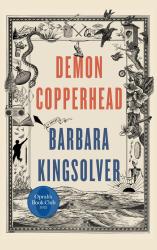Read for our f2f bookclub, it certainly elicited an interesting, lively and at times quite loud discussion. Most of which I couldn't contribute much to because I just didn't get this book. At All.
After, what is to be fair, a really captivating start with an engaging voice and a character that I really liked, then found mildly annoying, and then utterly exhausting, it's a bit undertaking - subject matter wise and size wise. Leaving aside the whole question of whether or not a reimagining of David Copperfield needs to be a thing to explore the ravages of the opioid crisis in the US on the poor, in this case, devastatingly so, underclasses of that society, it is what it is. Whether it worked as a vehicle, greater minds than mine have spoken. All I can say is that as a reading experience, for a reader who likes to get some insight into the human condition - I didn't.
I got a lot of pages of stuff about things that didn't seem to go anywhere, too much repetition and grinding home points that were well made what felt like dozens of iterations ago, all of which came across as poverty porn in the end. I would have liked to have come away from this with an understanding, an inkling into the sort of crisis that seems to be turning much of our world to shit, not least because the same sort of drug and underclass crisis is very much emerging here. Although it's probably only partially that - it's really about money, power and control to my eye. Much like David Copperfield pointed out when exploring the class and poverty problems in England in the mid 1800's. Maybe the difference here is that Kingsolver is observing the world that she's writing about, and she is rightly angry about what she sees, whereas Dickens was drawing on his lived experience and rightly considering what might be achieved.
Will be going back to reread Boy Swallows Universe with all of the above in mind
Demon Copperhead

Demon Copperhead is set in the mountains of southern Appalachia. It's the story of a boy born to a teenaged single mother in a single-wide trailer, with no assets beyond his dead father's good looks and copper-colored hair, a caustic wit, and a fierce talent for survival. In a plot that never pauses for breath, relayed in his own unsparing voice, he braves the modern perils of foster care, child labor, derelict schools, athletic success, addiction, disastrous loves, and crushing losses. Through all of it, he reckons with his own invisibility in a popular culture where even the superheroes have abandoned rural people in favor of cities.
Many generations ago, Charles Dickens wrote David Copperfield from his experience as a survivor of institutional poverty and its damages to children in his society. Those problems have yet to be solved in ours. Dickens is not a prerequisite for readers of this novel, but he provided its inspiration. In transposing a Victorian epic novel to the contemporary American South, Barbara Kingsolver enlists Dickens' anger and compassion, and above all, his faith in the transformative powers of a good story. Demon Copperhead speaks for a new generation of lost boys, and all those born into beautiful, cursed places they can't imagine leaving behind.